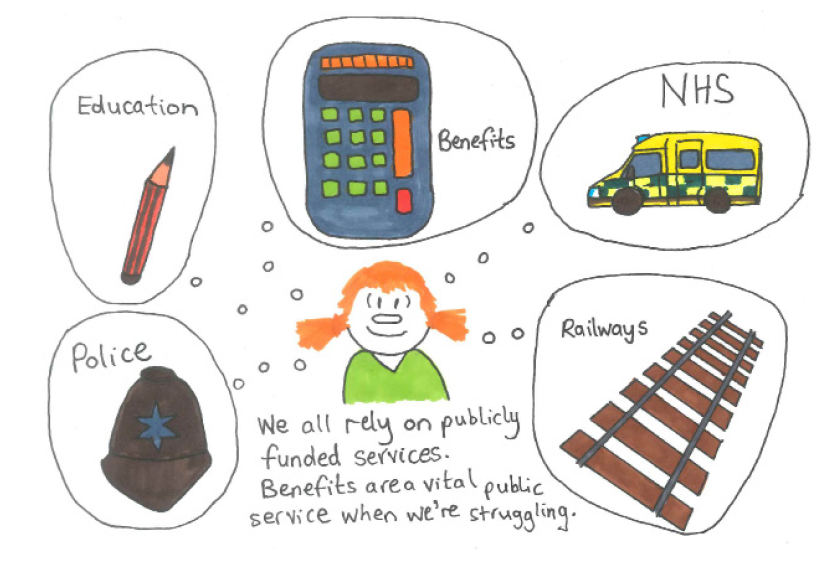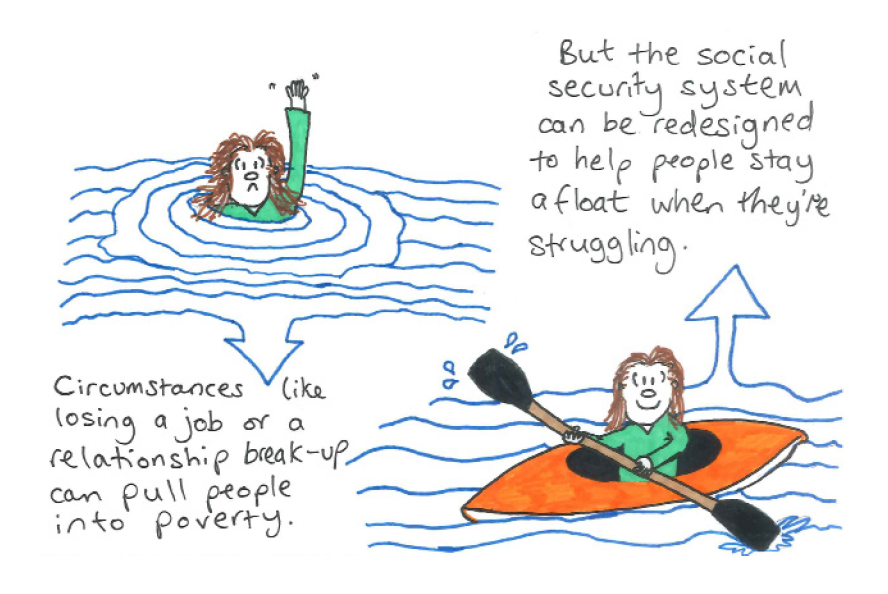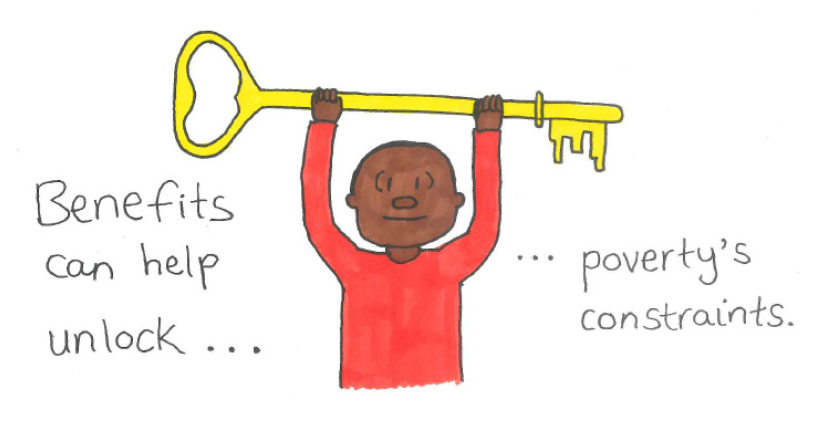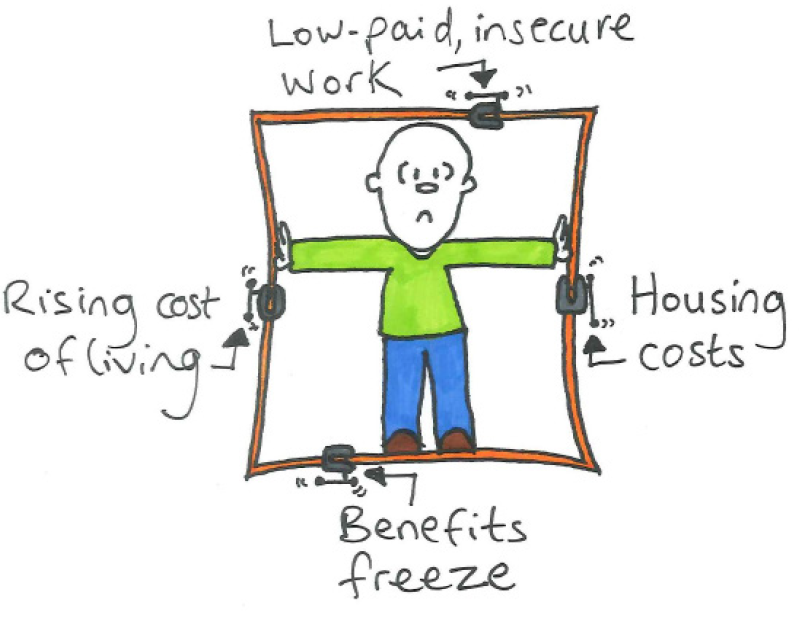All of us talk about poverty regularly – whether we work in an organisation on the frontline of poverty or not, we habitually react and comment on what we read in the news and see in social media about poverty in our country. We notice signs of poverty in our communities and make ‘off the cuff’ comments to our friends, colleagues, those we pass by about the state of poverty in the UK.
Research by the Joseph Rowntree Foundation (JRF) identified three common beliefs held about poverty in the UK today. These permeate into our thoughts and those casual comments we make:
1. We are post poverty – with many believing that poverty doesn’t exist in our country today. Frequently we refer back to images we have seen of poverty in other parts of the world, setting up an ‘us and them’ dichotomy.
2. Poverty is self-made – when people acknowledge poverty in our country they believe that it is a result of people’s own making. If only they tried harder or worked more they would not be in poverty.
3. The game is rigged – that there will always be poverty in the world and that nothing will ever change that.
When combined the effects of these beliefs mean that poverty often gets dismissed out of hand or is seen as inevitable and impossible change.
Telling a new story
We need to tell a new story about poverty – framing it in a way so we can build public and political will to solve it. We need to frame our story and solutions in ways people will hear and respond to.
‘Framing’ means making deliberate choices about how we communicate – both in our formal outputs – reports, blog posts, tweets – but also in our everyday conversations. It is about understanding how people think and feel, and telling stories that have the potential to change hearts and minds.
JRF argue that we need to frame poverty as a problem that can be solved – and make it clear that benefits are part of the solution, not the problem itself.

They found that using the language of compassion and justice was a more effective way to connect with people’s emotions than language about equality and fairness.
Metaphors are a powerful tool to help people understand poverty and related issues – JRF have produced simple effective cartoons to help us frame poverty:


Simple Swaps
JRF’s research found that there are several simple, effective ‘swaps’ we can make when talking about poverty.
Two we can begin to use in our everyday conversations could be:
SWAP “It’s not fair” for “It’s not right” – this connects with people’s sense of compassion and justice and moves away from a points scoring criteria about fairness
SWAP “Living in poverty” for “locked into poverty” – this conveys the image of poverty being an involuntary restraint that stops people from choosing their own path.
Stop, frame, repeat
It’s going to take time, and practice to re-frame how we think and communicate about poverty.
We will all make mistakes along the way.
Let’s take an extra moment before we speak or write to choose our words and images with care, so together we can work towards solving poverty in the in UK.

Want to find out more about framing? Joseph Rowntree Foundation’s framing toolkit is the perfect place to start.
All cartoons used in this blog belong to JRF / Frameworks and can be found in their Framing Toolkit.
